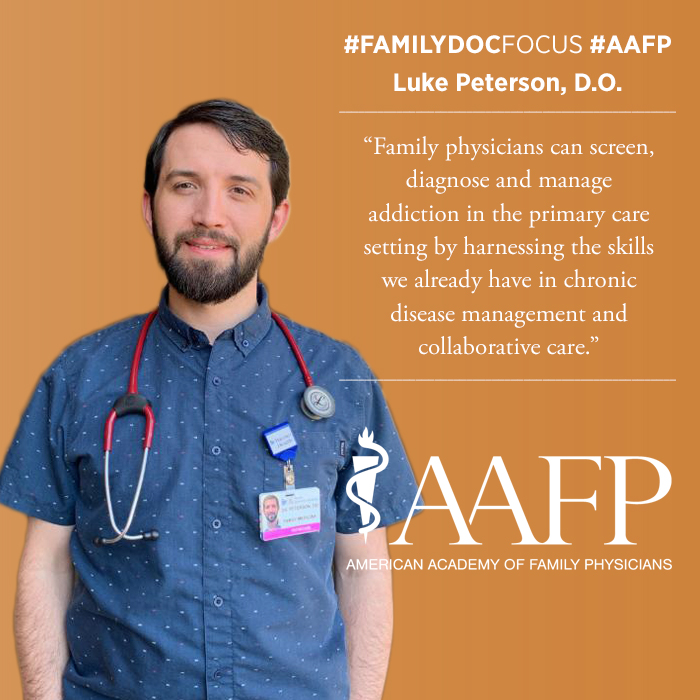Creating an Academic Hub for Addiction Medicine
February 04, 2019, 09:21 am David Mitchell – Luke Peterson, D.O., was a third-year medical student when he observed family physician Aaron Newcomb, D.O., during a clinical rotation in Carbondale, Ill. The experience changed the way he thought about treating addiction.

"He responded to cases in the outpatient setting like no other physician I had seen," said Peterson. "When he saw patients seeking pain medication and showing signs of addiction, Dr. Newcomb would approach them with compassion instead of as a burden. He identified addiction and offered patients comprehensive care rather than a simple referral to counseling."
That care included buprenorphine, and Peterson said he was inspired to get his own buprenorphine waiver as a resident.
Peterson said that in previous rotations he had seen patients stigmatized and discharged without appropriate addiction treatment and pain control. This was different.
"I saw patients stabilize and turn their lives around so much more rapidly than anything I'd seen before," he said. "These were patients struggling with addiction at rock bottom. He gave them a second chance at life."
After graduating from the University of Arizona College of Medicine - Phoenix Family Medicine Residency, Peterson continued his training in addiction medicine at the fellowship at Swedish Family Medicine Residency at Cherry Hill in Seattle.
Peterson brought that training back to his alma mater and has helped develop a curriculum for a new addiction medicine fellowship in Phoenix.
"The timing is right in Arizona for a fellowship," Peterson said. "There are many stakeholders and educators wanting to train the next generation of addiction medicine leaders. In light of the opioid epidemic and new laws passed in Arizona, there is a lot of interest in creating an academic hub for addiction medicine."
In fact, the HonorHealth Family Medicine Residency Program, Scottsdale, and Community Bridges Inc. partnered to launch the region's first addiction medicine fellowship last fall.
Peterson is the associate program director for the new University of Arizona program, which will accept two fellows per year starting in July. The fellowship will be hosted by the family medicine residency and will offer rotations through Banner Health and the Phoenix Veterans Affairs Medical Center.
Peterson said he spends half his time treating addiction and half in more traditional primary care. However, he said demand is so high for addiction medicine that some days he spends all his time with addiction patients, including inpatient hospital consults and pregnant patients with substance use disorders.
Peterson said physicians don't have to be board certified in addiction medicine to provide addiction treatment, but he said the fellowships can set a community standard for education and practice.
"These new fellowship programs will provide the community with new addiction medicine providers that will train and support others so that we can have a larger impact on treating addiction and lowering the burden of the opioid overdose epidemic," he said. "The philosophy is that family physicians can screen, diagnose and manage addiction in the primary care setting by harnessing the skills we already have in chronic disease management and collaborative care."
This isn't the first time that Peterson has identified a need and helped create something new.
During his residency training, Peterson pitched the idea for the AFP Podcast to program director Steve Brown, M.D. Four years later, the popular program averages more than 50,000 downloads per month and eclipsed 1 million total downloads last year.
"It gets better every year," Peterson said. "I really enjoy continuing to listen to it. Steve and the podcast team have done an incredible job. He gives me credit for the idea, but they deserve all the credit for making it into a masterpiece of evidenced-based medicine."